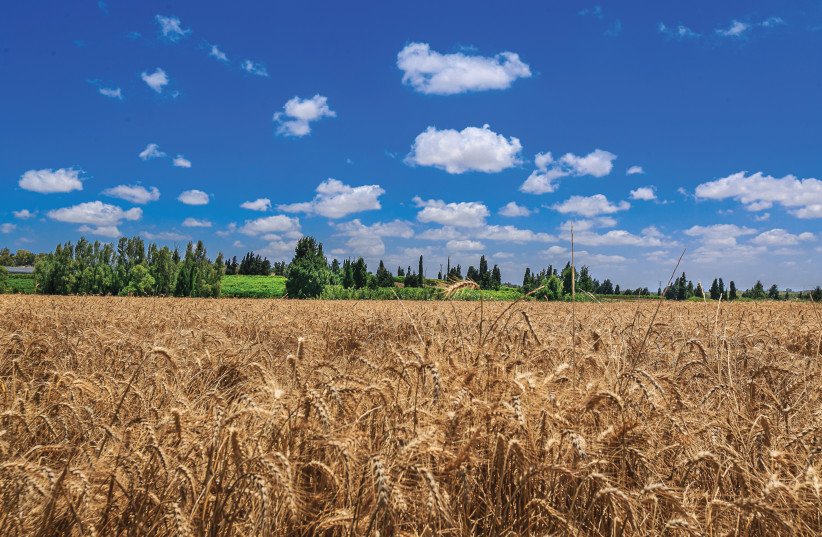As weeks of tension now turn to open warfare between Russia and Ukraine, the effects on the global economy are becoming clear. World trade in wheat is greater than for all other crops combined, and its price reached a nine-year high on Thursday, $9.32 per 60-pound bushel, as the escalating conflict led to expectations of disrupted supplies.
Russia is the third-largest producer of grain, after China and India, and Ukraine is the ninth-largest. Together, the two warring countries produce more than a quarter of the world’s wheat and nearly a third of global exports.
Investors are worried about whether the two countries, especially Ukraine, will be able to continue to produce and export the product in light of the war and the sanctions imposed by the West.
Jack Scoville, vice president of Price Futures Group Inc. in Chicago, said in a statement, “I don’t know how high we’re going. It’s really going to depend just on how much this crisis spins out of hand.”
Alex Coman, a senior Israeli economic consultant, told The Media Line it looks like the price of wheat will continue to rise, depending on how the conflict develops.

Much of the wheat consumed in the Middle East comes from Ukraine, he explained. “The country is paralyzed in the sense that transportation is basically dead,” he added.
And in the Middle East, “we know from experience that when bread prices rise, it results in unrest,” he pointed out. “Look back to the Arab Spring. Most of it was because the price of bread rose, and people could not afford it.”
As prices rise, “governments in the Middle East need to start subsidizing [more than they already do]. If they do not absorb the increase, it could result in unrest in many countries in the Middle East. Bread must be accessible for everybody,” he said.
Some countries, such as Egypt, Jordan, and Syria, will be in particular need of increased subsidies if they want to avoid a descent into chaos, Coman said. “Others such as Saudi Arabia and Israel won’t need them so much.”
It is important to understand that the conflict between Russia and Ukraine and the consequences it brings, such as higher prices for petroleum and grains, will not affect every country in the same way, he said.
“The strong countries are going to do fantastically well as the price of oil goes up. And the poor countries are going to do particularly badly because oil and wheat will cost more and that will be a severe problem for them,” Coman said.
He added that Russia is going to benefit from the market changes because it will be able to continue to produce wheat and other grains and sell them at high prices that we see today. However, other sources believe the uncertainty felt by buyers will hurt Russian commerce.
What is certain, Coman said, is that the other major exporters of wheat to the region such as Western European countries and even the United States will benefit.
However, he thinks that the wheat issue won’t be a long-term problem.
“I believe that everything will go back to normal in a few weeks. Farmers in Ukraine will start working again. Russia will finish destroying the Ukrainian Navy and the world will go back to usual and be stable again,” Coman said. “And probably vodka will be more expensive.”
